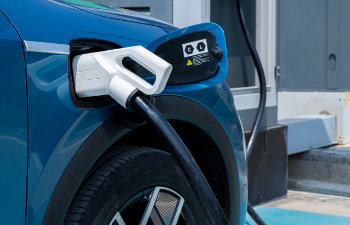
Electric vehicles (EVs) are becoming increasingly popular due to their eco-friendliness and cost savings on fuel. However, like any new technology, EVs are not without their problems. One of the most significant issues facing EV owners is battery problems, which can lead to reduced range, decreased performance and even safety concerns.
Lemon Larry wants consumers to know about the most common EV battery problems, how they can be prevented and what to do if you find yourself with a lemon EV.
Common EV Battery Problems
- Battery Degradation: One of the most well-known issues with EV batteries is degradation. Over time, EV batteries lose their ability to hold a charge, which can lead to a reduced driving range. This is due to the chemical reactions within the battery, causing it to lose its ability to store energy.
- Cold Weather Performance: Another significant issue facing EV owners is cold weather performance. EV batteries are less efficient in cold temperatures, leading to reduced range and slower charging times. This can be particularly problematic for those who live in colder climates, where winter temperatures can dip well below freezing.
- Battery Fires: Although rare, EV battery fires are a serious safety concern. The lithium-ion batteries used in most EVs are highly flammable and can catch fire if damaged or overheated. While EVs are designed to be safe, accidents can happen, and awareness of the risks is essential.
Preventing EV Battery Problems
If you recently purchased a new EV, take the following precautions to prevent battery problems:
Regular Maintenance
Regular maintenance is crucial for keeping your EV battery in top shape. This includes keeping the battery clean, avoiding extreme temperatures and following the manufacturer’s recommended charging procedures.
Battery Management Systems
Most modern EVs have sophisticated battery management systems that help prevent battery degradation. These systems monitor the battery’s performance and adjust charging rates and other factors to optimize battery life.
Charging Infrastructure
Access to a reliable charging infrastructure is also essential for preventing EV battery problems. It’s important to have access to various charging options, including fast and level 2 chargers, to ensure that your battery is always topped up when needed.
Lemon Laws and EV Battery Problems
If you find yourself with an EV that has persistent battery problems, you may be covered by your state’s lemon laws. Lemon laws are designed to protect consumers who have purchased defective vehicles that cannot be repaired after a reasonable number of attempts.
To be covered under lemon laws, your EV must meet specific criteria, such as having a significant defect that impairs the vehicle’s safety, value or use. You may be entitled to a refund or replacement vehicle if your EV meets these criteria.
However, this can be problematic due to the Federally mandated warranty on EV batteries. The law requires manufacturers to cover EV batteries for eight years or 100,000 miles. If your EV has battery problems, they are likely covered under this warranty. As long as the dealer handles your problem efficiently, lemon laws do not apply.
Lemon Larry Can Help!
EV battery problems are a significant concern for EV owners but can be prevented with the proper maintenance and infrastructure. If you find yourself with a lemon EV, contact Lemon Larry immediately to see if you qualify for a refund or replacement vehicle. We can connect you with a Lemon Law Attorney near you who can provide up-to-date information and advise you of your next steps.








